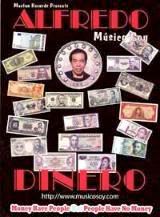The Biofuels Law: Ethical Aspects
I just saw another interesting article from GMANews.TV. It’s actually the conclusion of a two-part special. The first one focused on “Arroyo brother-in-law to use biofuels law to evade CARP?” Now, this one, focusing on "Ethical lapses mark passage of Biofuels Law, says report," is just as interesting as the first. And I kid you not! Read on, friends!
There is perhaps no lawmaker as enthusiastic about biofuels as Sen. Juan Miguel Zubiri. Zubiri was still congressman for the third district of Bukidnon when he became principal author of the House bill that eventually became Republic Act 9367 or the Biofuels Act. He campaigned hard to get other lawmakers to support the measure that he earned himself the nickname “Mr. Biofuel." His official page in the Senate website describes him as the “father of the Biofuels Act of 2006."
A-KiD: I believe I made a post on this sometime ago. Link is here.
Zubiri’s campaign for biofuels appears to be in keeping with his pro-environment image. Biofuels, made from such sources as sugarcane, coconut and jatropha, are after all supposed to be a cleaner alternative to fossil fuels. But Zubiri and his family—long-time sugar planters—also stand to gain from the budding biofuel industry that will depend mostly on sugarland for raw material.
Like Zubiri, 10 other authors of the Biofuels Act in the House of Representatives and the Senate and their families own agricultural lands that can or will provide feedstock for biofuel production. They include former congressman Herminio Teves and presidential brother-in-law Ignacio “Iggy" Arroyo.
A-KiD: Now, are you saying that there is conflict of interest here? Wait, let me read more.
Ethical lapses like these marked the passage of the Biofuels Act of 2006. Some of the lawmakers' vested interests prevented thorough discussions of the conversion of agricultural land to biofuel purposes, a move which will not only deprive farmers of land, but also cause more environmental damage in the long run.
A-KiD: “Ethical lapses” has become a favorite term to describe recent development.
Zubiri belongs to a family with a long-running history in the sugar business. His uncle George and father Jose Maria, the current governor of Bukidnon, hail from Negros Occidental, part of the country’s “Sugar Bowl." The Zubiris are credited for bringing sugarcane to Bukidnon in the 1970s. The two were holding top positions at the Confederation of Sugar Producers Association (CSPA) at the time the younger Zubiri drafted the biofuels law.
Fernando Corpuz, manager of the Sugar Regulatory Administration’s research development and extension for Luzon and
A-KiD: Now, this is becoming more interesting than all alternative sources of energy combined! No kidding!
Zubiri denied allegations of conflict of interest in the passage of the Biofuels Act. “I'm fighting for my district and for the constituency of all the sugar-producing areas," said the 38-year-old senator. “I’m fighting for the interests of the farmers: They are five million Filipinos. That's my job." These farmers have suffered from the lag in the sugar industry, which posted the largest decline among the agricultural industries at the end of 2007, partly due to low world prices for table sugar. The SRA then looked to bioethanol as an alternative market to revive the industry.
A-KiD: I remember Tagpi barking, “I wish the politicians would look after the welfare of the people more than their share of the pie.”
It was Sen. Miriam Defensor-Santiago, former Secretary of the Department of Agrarian Reform (DAR), who raised the issue of conflict of interest in the passage of the Biofuels Act when she alleged in press releases that landlords had strongly lobbied for biofuels.
A-KiD: One thing I like about Senator Miriam is her way of saying things that will hit one hard like an irresistible force.
Feeling alluded to, Zubiri clarified that his family—the ruling political clan in Bukidnon that owns vast landholdings—has shifted from sugar to bananas. "I'm not producing sugar anymore. It's all bananas now," he said.
A-KiD: See what I mean!
Eil Branzuela, provincial agrarian reform officer for South Bukidnon, said, however, the senator’s father still has a connection with the Bukidnon Sugar Milling Co. (BUSCO), which the family used to own, because of his position as Bukidnon governor.
The young senator was quoted in media as having said that BUSCO would tie up with Bronzeoak
Governor Zubiri is also the president of the CSPA, a position he has held since Sept. 1, 2006, according to SEC documents and a statement from the senator himself. SEC documents also reveal that his uncle George was the senior vice president of the confederation from Sept. 1, 2004 to Aug. 31, 2006.
A-KiD: Am I missing something here? Is this a family gathering of sort?
The confederation, which declares its aims as developing and securing the stability of the sugar industry, has 31 associations composed of 4,000 to 5,000 members each. It is said to produce more than half the country’s sugar supply.
In addition to being in the position to supply most of the sugar needed for ethanol production, the implementing rules and regulations of the Biofuels Act made the confederation a member of the Bioethanol Board, a consultative body that will work with the SRA in developing and implementing bioethanol-related policies.
A-KiD: Wow! It’s like having everything you need under one roof!
Senator Zubiri, however, insists that he and his family are out of the sugar business. “I personally do not own more than 10 hectares titled to me, and same with the rest of my family, because we were already subjected to agrarian reform in 1988," he said.
Declarations of real property acquired from the Bukidnon provincial assessor’s office reveal otherwise. They show that along with various members of the Zubiri family who separately own portions of sugarcane land, the senator himself has eight hectares in Maramag, Bukidnon dedicated to sugar crops. These sugar lands are what the Zubiris retained from their vast landholdings, Valle Escondida in particular, after being subjected to the agrarian reform program in the late 1980s.
A-KiD: I really like the way GMANews.TV handles itself when it comes to reporting.
Asked why his father is the CSPA president, the senator admitted that his father still owns about 30 hectares of land planted to sugar “so he can be part of the confederation." “My father is (producing sugar), but he’s not a senator. He’s not a congressman. Under the law, the violation is only the legislator," he said.
A-KiD: I ask again, “Is there no conflict of interests, here?”
Joel Villanueva, agrarian reform officer of Maramag, said that a total of 610 hectares of the Zubiris’ Valle Escondida were transferred to 281 farmer-beneficiaries.
Branzuela said certificates of land ownership have been given to the farmer-beneficiaries, but the Zubiris still operate on the land through a leaseback agreement. The Zubiris, in turn, are leasing this land to food packaging giant Dole, he said.
Zubiri did not deny this. “The beneficiaries still own the land. We pay them every year for the use of the land even if it’s ours in the first place," he said.
A-KiD: Sugar is sweet. Ampalaya is bitter.
Gil de los Reyes, agrarian reform lawyer and former DAR undersecretary, said it is unclear how a leaseback agreement can be fairly made as “there are no clear rules" on the terms of such a transaction.
Explaining the House deliberations on the biofuels bill, Zubiri said that aside from industry players and government agencies, he had consulted with Greenpeace, Haribon and the Clean Cities Movement. “They were all consulted when we passed this, especially the groups that pushed for cleaner air," he said.
Transcripts of the House meetings and sessions, however, show that these groups were never given the floor during the deliberations. Neither were farmers’ groups. As much as the lawmakers mentioned the sugar boom’s benefits to farmers in terms of employment, nothing in the House transcripts pointed to a discussion of how exactly profits would trickle down to grassroots farmers. These discussions came up only in the Senate and during the bicameral conference committee meetings.
A-KiD: Just for show, kids!
There is much to be gained from biofuels, although that can be interpreted in two ways. On one hand, there are gains to the public—cleaner air, lower oil prices and higher employment rates. On the other hand, there are the more sinister gains the lawmakers have carved out for themselves—generous profits to be made from the boom in feedstock plantations.
A-KiD: Now, that’s putting it bluntly! Wow!
Antonio Flores, national treasurer of the farmer’s group Kilusang Magbubukid ng Pilipinas, is careful to make a distinction between these two benefits. He said: “Hindi naman kami tutol sa usaping development. Pero, ang tanong namin, para kanino ang development (We aren’t against development. But our question is, for whom is this development)?"
A-KiD: Same question here, my friend!
There are other looming issues that are not sufficiently discussed by the Biofuels Act and its IRR. These include complications with land use, continuing environmental harms, and an even more problematic imports situation.
Corpuz of SRA expressed misgivings about the dearth of policies on land use. The SRA is tasked to check the suitability of lands for feedstock plantation before a potential planter ventures into planting vast tracts of sugar crops.
National Biofuels Board (NBB) Deputy Director John Jacob Gonzales enumerated these as “no competition for food, no competition for land. Biofuels should be planted on green fields or marginalized land. Conventional land for food crops like rice and others should (not) be in direct competition."
He did not say how his board plans to prevent or discourage landowners from converting food crops to feedstock plantations—to the displeasure of farmers like KMP’s
“Ang posisyon namin diyan ay yung lupa
Aside from ensuring that there will be no competition with food, the NBB guidelines also prohibit feedstock land use that will harm the environment.
Surprisingly, the law does not include the Department of Environment and Natural Resources among the members of the NBB despite the reported ecological harms associated with feedstock growing.
Clearing forests to make way for feedstock plantation has caught the attention of environmental groups all over the world. Biofuel production in
A-KiD: I think I made a post that similarly tackles the issues at hand. Link is here.
Conversion of forests and grasslands into palm oil plantations is said to be emitting more carbon than gasoline usage. These conversions release 17 to 423 times more carbon than the amount reduced by biofuel use, revealed a February 2008 study by the
Despite an alleged surplus in feedstock, especially in the case of sugarcane, the
“For biodiesel I think we have enough supply," Gonzales said. “But for bioethanol, we need to set up at least 10 more factories, and each factory needs 30 million liters. One factory alone needs at least one year and a half (to construct)."
Gonzales said the government will have to import bioethanol to reverse the deficit.
A-KiD: Indeed, we are facing a number of concerns with regards to the Biofuels Act. I mentioned these before, e.g., importation problems, environmental and land use issues, and political concerns. We are creating more problems than solutions at a time when the




























































